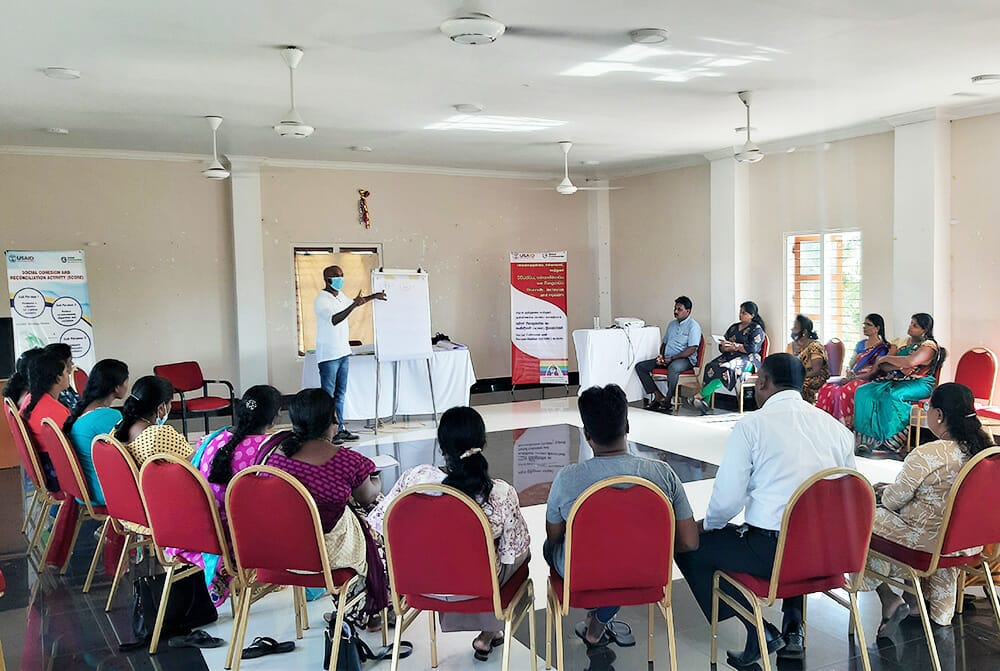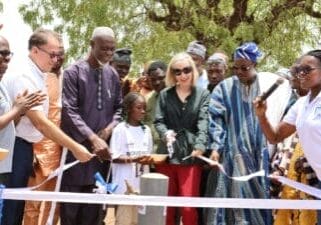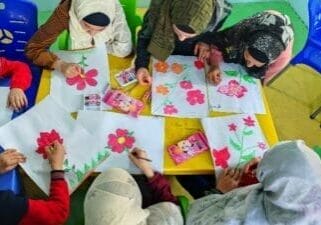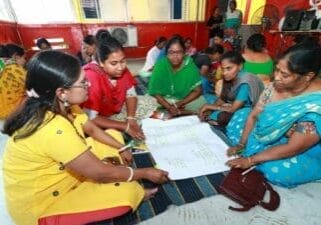News > Blog
Expanding Outreach and Support for the LGBTQI+ Community in Sri Lanka
Published 02/14/2023 by Global Communities

By Aditi Sharma
Transgender people in Sri Lanka frequently face social rejection, lack protection and have little to no representation in political parties due to the absence of anti-discriminatory legislation in the country. They are often excluded from accessing essential services and social benefits systems as well.
“Some of our community members don’t have sustainable shelter and economic resources for their livelihood, and most of our community members are targeted by the police,” says Angel Queentus, a transgender woman who grew up in Jaffna District and describes the challenges she and others have faced as members of the lesbian, gay, bisexual, transgender, queer and intersex (LGBTQI+) community in Sri Lanka.
“When we were coming up, we faced a lot of direct violence and discrimination from society, in schools, at home and in workplaces,” she says. “… The community didn’t allow us to at least walk on the road. They bullied us and threw stones and other things at us.”
These acts of discrimination, an increasing sense of isolation and the overall lack of community resources and organizational support available to transgender people prompted Queentus to start the Jaffna Transgender Network (JTN) in 2019, with the help of her transgender friends and gender-nonconforming people from Jaffna.
With no safe space for gathering and no funding opportunities or assistance, the group mobilized support from the transgender community and young people across Sri Lanka through social media. Eventually, the organization grew from Queentus and her small group of friends to nearly 30 members, including transgender people from Batticaloa, Kandy and Puttalam districts. The group mainly collaborated online and began working towards educating those in their communities on the challenges facing transgender and other LGBTQI+ people.
“Without recognition from the community, we can’t ensure our rights,” Queentus says. “Due to that, we wanted to acknowledge and educate society with our stories and workshops.”

In response to JTN’s online activities, Global Communities — working under the United States Agency for International Development (USAID)-funded Social Cohesion and Reconciliation (SCORE) activity — contacted the group to find out ways in which the program could support its efforts to advance human rights, advocate for policy changes and increase their membership. This was the first time JTN had worked with SCORE or any USAID-funded program.
“At the initial stage, we didn’t want to collaborate with any organization, because we were fearful of the system,” Queentus says. “However, we wanted to expand our network among formal institutions to give recognition to our organization and to raise voice for our rights.”
SCORE’s approach and flexible program design, in particular, resonated with JTN members, as two of its primary components focus on promoting a cohesive Sri Lankan identity and reducing socioeconomic disparities among marginalized communities through the efforts of local partners and civil society organizations.
“The SCORE staff were very kind to reach out and help us to understand the project,” Queentus says. “Their understanding of our community and their flexibility made us more comfortable to work with them.”
Since August 2021, SCORE has supported JTN in establishing a fully-equipped office space and platform where they can meet, host external stakeholders and raise awareness of resources available to the LGBTQI+ community in Sri Lanka. The program has also provided trainings on effective approaches to online and in-person advocacy campaigns, facilitated workshops on digital storytelling, and created networking opportunities involving nearly 100 representatives from other LGBTQI+, civil society, youth and women’s groups in the region.
Over the summer, Anushiya Jeyakanth was one of 25 local leaders from various sectors across Jaffna District who participated in an open dialogue session with JTN on understanding the issues faced by the LGBTQI+ community and ways to partner with them in identifying solutions.
As a local government representative, she acknowledged the need for change in Sri Lanka’s political landscape and said the session “created even more enthusiasm towards working for the LGBTQI+ community’s rights and advocating for them.”
She also suggested that SCORE and JTN expand outreach and awareness programming to include working with family members of the LGBTQI+ community as well as children and students to accelerate the possibility of social change.
All told, JTN’s efforts under SCORE have increased its total membership and reach to 50 members across Jaffna, Kilinochchi, Kandy, Puttalam, Mannar, Vavuniya, Mullaitivu and Colombo districts.

Queentus, who serves as director of JTN, said it has also brought forth an elevated level of empowerment and engagement from its participants, as they are becoming more confident in articulating their identities and amplifying their voices on LGBTQI+ issues and the discrimination facing them and their peer group. This past June, JTN members and others marched proudly in the first-ever Pride Walk in the country, celebrating their identities and achievements in building an inclusive and supportive community for LGBTQI+ people.
“The state of the LGBTQI+ community has improved quite a bit in the last three years, compared to any other period in history,” Queentus says. “Members of the LGBTQI+ community are becoming more comfortable in declaring their identity, working with their peers to stand up for their rights and sharing their stories.”
As JTN celebrates how far it has come in providing the necessary support and awareness to empower transgender and gender non-conforming people across various regions in Sri Lanka, it also recognizes that more work is needed to create long-lasting change, especially from an advocacy and policy standpoint.
Future goals include advocating for governments and related institutions to adopt necessary policies in favor of the LGBTQI+ community, calling for improved access to proper medical treatments and expanding JTN’s focus to other members of the LGBTQI+ community, while continuing to strengthen its capacity to support transgender people.
“When we started JTN, we were not economically stable and didn’t have the capacity and human resources to do the needful work,” Queentus says. “After our collaboration with SCORE, we are getting some opportunities to expand our work in society.”






